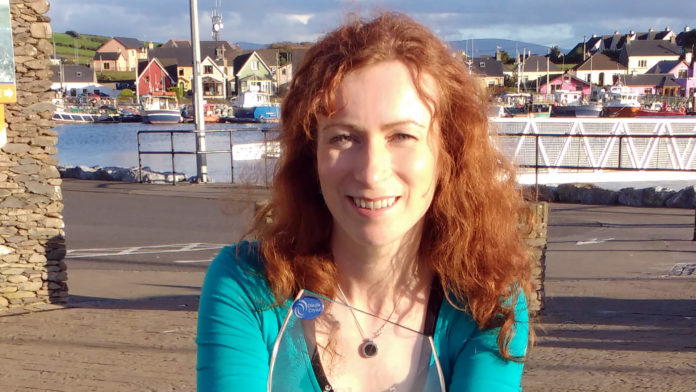
One third of Ireland’s 98 bee species are facing extinction, but farmers can help save threatened bee species with just a couple of simple steps, according to Galtee beekeeper Aoife Nic Giolla Coda of Galtee Honey Farm.
Aoife attended the launch of Teagasc and the Federation of Irish Beekeepers’ Associations’ (FIBKA) new information leaflet, “How Farmers can help Bees,” at Oak Park in Carlow last week.
Advice for farmers in Teagasc’s new leaflet includes helping bees by allowing space for wild flowers to grow in hedgerows and field margins, around farmyards, along farm roadways and in field corners.
Tillage farmers should spray crop protection products in the early morning and late evening when honey bees are less active, and where possible, notify local beekeepers in advance of carrying out the operation, the leaflet also advises.
UNCUT HEADGEROWS A LIFELINE
The Mac Giolla Codas are a three-generation family of beekeepers, one of around twenty beekeepers in the Galtee area.
“We generally have a good relationship with local farmers because our apiaries are on farms, so the landowners are very conscious of the importance of the hedgerows, which would be our biggest concern,” Aoife said. “The Galtee valley is one of the most important regions for our native black honey bees.”
Aoife urged local farmers to allow hedgerows to thrive, and to observe the closed season between March and August, when hedgerows shouldn’t be cut to allow the bees to feed from the wild flowers.
“Some people prefer things to look neat, but what one person thinks is a nicely cut hedgerow is actually bad for wildlife and the pollinators,” she said. “The Galtee area generally has quite good hedgerows, but farmers need to remember that hedgerows are the lifelines of the honey bee.”
As well as preserving hedgerows and spraying with caution, Aoife would also like to see farmers reduce the amount of fertiliser they use so that flowering plants like white clover are present in fields for bees to feed on.
Meanwhile, the Irish Wildlife Trust (IWT) has called for a ban on “over-the-counter” sales of weed-killer to cut back on the roadside use of herbicides which destroys the plants bees feed on.
“Herbicides are essential in the fight against alien invasive plant species, such as Japanese Knotweed or Rhododendron, and for this reason we are opposed to a blanket ban,” Pádraic Fogarty, IWT Campaigns Officer, said.











